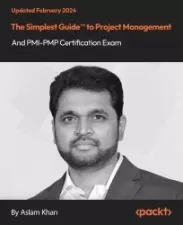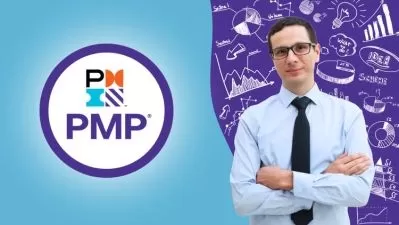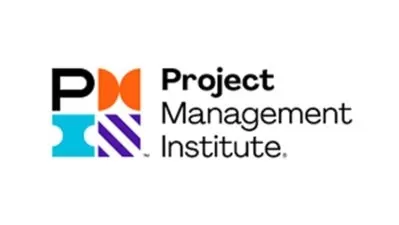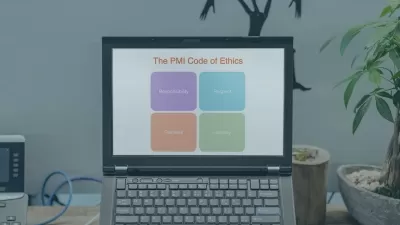About PMPLearn More
To be eligible for the Project Management Institute’s PMP certification exam, you must have 35 hours of project management education or training or have completed a Certified Associate in Project Management CAPM certification. You also need either 36 months of experience leading projects and a bachelor’s degree or 60 months of experience leading projects and a high school diploma or associate’s degree. You can earn the required 35 hours of training through Udemy courses.
Sort by:
Sorting
The newest
Most visited
Course time
Subtitle
Filtering
Courses
Subtitle
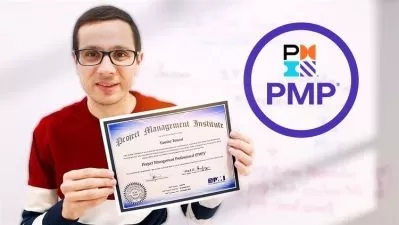
Udemy


Yassine Tounsi
PMP 35 Hours Master Course: PMP Certification Exam Prep 25:53:42
English subtitles
09/14/2024

Udemy


EDUCBA Bridging the Gap
PMP Certification - Complete Exam Prep Course Bundle 40:20:49
05/19/2024
Subtitle

Udemy


Dr. José J
Certified Project Manager (CPM-IAPM ) 101 level Course 56:00
English subtitles
11/20/2023
Subtitle

Udemy


Rohit Gupta
Full PMBOK 7th edition training; All 2022 PMBOK 7 chapters 9:32:03
English subtitles
10/01/2023
Frequently asked questions about PMP
The project management professional (PMP) certificate is a globally recognized professional certificate offered by the Project Management Institute (PMI). PMP certification confirms you have met the rigorous work experience and educational requirements required by the PMI. PMP certified individuals have a minimum of three years of work experience. Academic requirements focus on three talent triangles: technical, leadership, and strategic and business management. The work experience and educational requirements together support the PMP’s emphasis on theory and practice.
The project management professional (PMP) certification supports both project management professionals and businesses. Businesses that hire PMP-certified project managers can be confident that their projects will be managed from a consistent framework. Good project management and reporting are critical for a business to manage risks and deliver on strategy. Certified PMP professionals are educated and trained in identifying, managing, and reporting project risks using an approach and technique with proven roots in theory and practice. Project management professionals use PMI as a professional institution that encourages lifelong learning and support with events. PMP certificate holders coach and support each other by volunteering and developing new content. In addition to the PMP-certified professionals' knowledge and confidence in their day-to-day work, PMP certification will help boost a resume when looking for a new job.
PMP certification covers three areas of project management: technical, leadership, and strategic and business support. These are the talent triangles in the Project Management Institute (PMI) terminology that are being tested. Project management includes managing the resource costs, so memorizing formulas and calculations is necessary. Like real-life project management, questions are often lengthy, with a lot of reading and parsing out the critical information. The test is timed, and these questions can be time-consuming. The content of the test is challenging, but the questions are clear and easy to understand.
Project Management Institute (PMI) qualifications require a minimum of three years of work experience leading projects. If the applicant does not have a four-year college degree, the work experience requirement is five years. This is the minimum time dedicated to getting certified. Each applicant will also determine their course of study and the amount of time to dedicate to studying. The minimum time required is 35 hours of project management education, but people often spend more time in preparation for the exam. Applicants can study while completing the work requirements, shortening the overall preparation time. The exam has 200 multiple-choice questions that the applicant has four hours to complete. The tests are scheduled at local PMI centers. Applicants should contact their local center to review the test schedule and select a target date.
A PMP certification validates your skills in many areas, including project planning and execution, team leadership, time management, budgeting, and documentation. Certifications such as the PMP also signal to potential recruiters that you are organized, have superb communication skills, can see the big picture while thinking critically and that you invest in training and in learning new skills. As such, the PMP certification can help secure many different roles in many industries. These include project management, engineering management, and operations management in fields as diverse as healthcare, IT, transportation, engineering, consulting, pharmaceuticals, education, and government. Common job titles for PMP holders include Project Manager, Technical Project Manager, Team Lead, Project Delivery Manager/Specialist, and Business Analyst.
The skills needed for successful project management are as diverse as the industries in which project managers work. You can be a project manager in healthcare, finance, insurance, education, government, or at a startup or non-profit. Depending on your role and the types of projects you manage, you may require different skills at different times for various projects. However, successful project managers are generally skilled in project planning, time management, budgeting, and risk management, and they have sound technical, analytical, and communication skills. They also have the leadership, diplomacy, and coaching skills specific to their work. Understanding the processes and regulations that govern your niche or industry is also critical to success, as is the ability to forge relationships and collaborate with others. A PMP certification can provide you with the grounding you need to build these skills and others required in your industry.
Depending on your career level and industry, there are many certifications you can pursue instead of the PMP. For example, the Project Management Institute (PMI) offers the Certified Associate in Project Management (CAPM) certificate, an entry-level certification in the project management field. PMI also has the Program Management Professional certificate (PgMP) for more experienced program managers who regularly manage large, complex projects. The Portfolio Management Professional certification (PfMP) is designed for portfolio managers, while the PMI Professional in Business Analysis (PMI-PBA) certificate validates your ability to work with stakeholders and deliver successful outcomes. In addition to these credentials, there are certifications for agile project management (Agile Certified Practitioner or ACP), risk management (Risk Management Professional or RMP), and PRINCE2 (Projects in Controlled Environments, version 2).
Project management is a great career for anyone who enjoys overseeing projects from start to finish. Whether you're interested in working for a government agency or would rather join a private company, the options across industries are endless. In addition to the limitless possibilities to work in any field, the demand for the role is expected to grow in the next decade. According to the Project Management Institute, employers will need to fill roughly 88 million PMP-related jobs in the years ahead.












